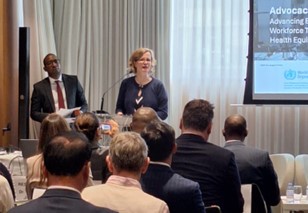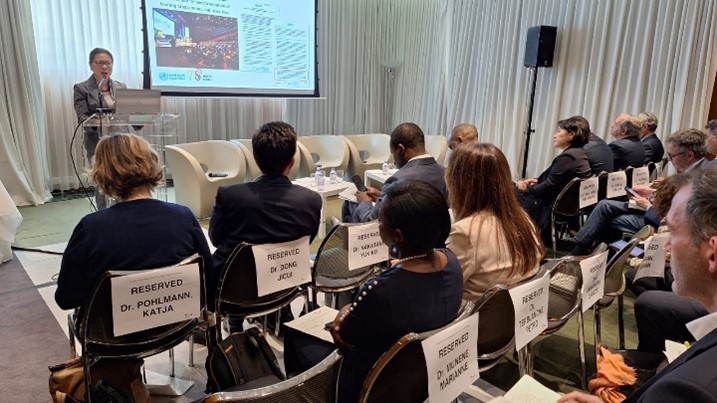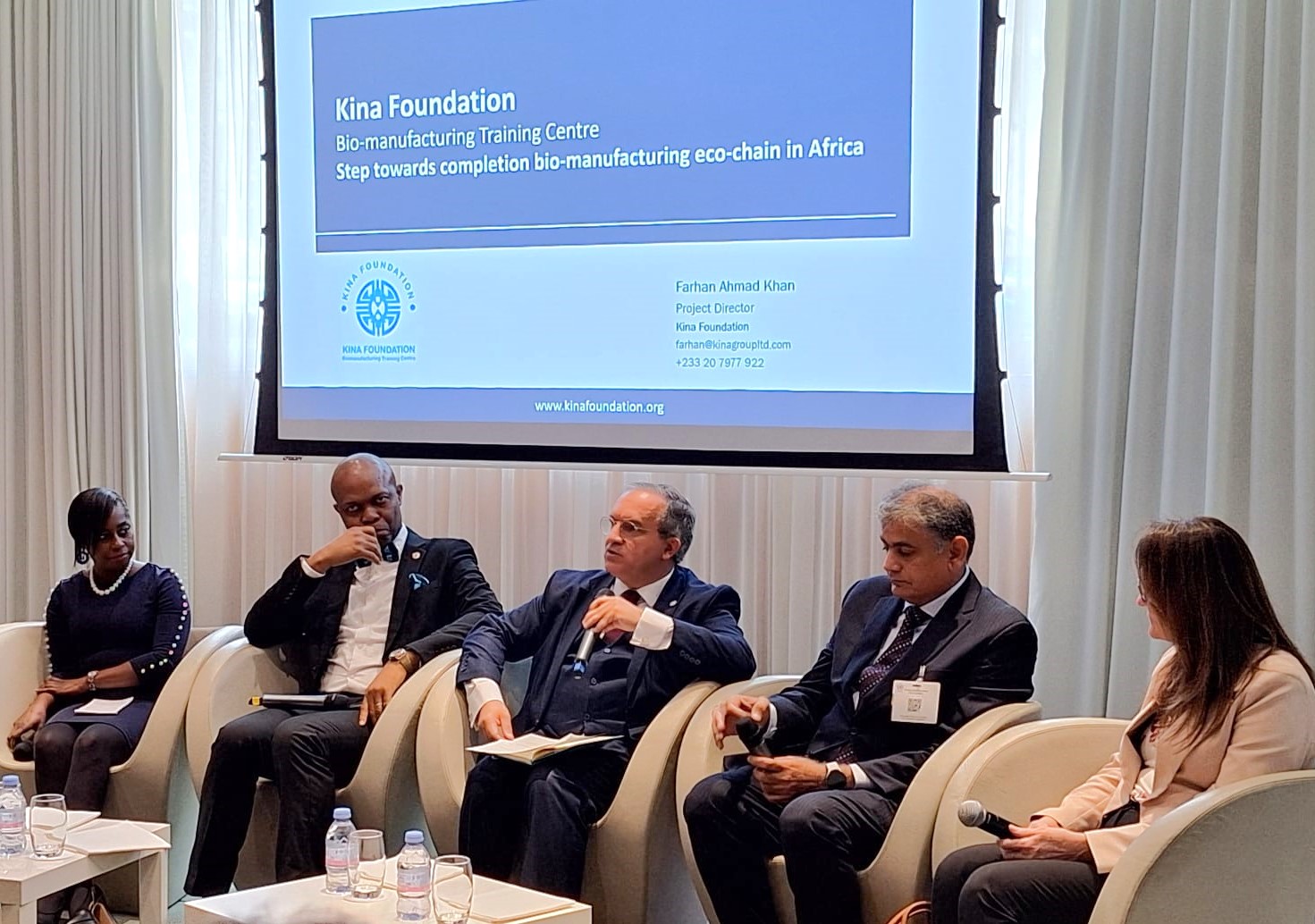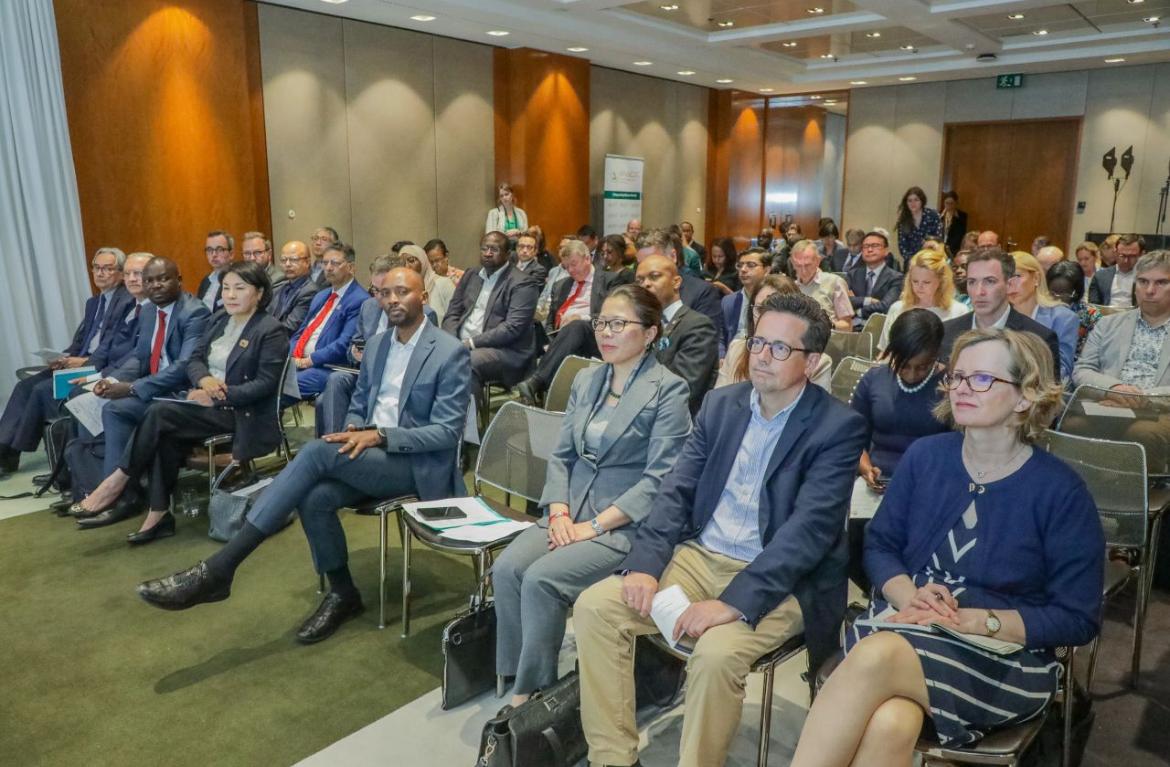The “Advancing Biomanufacturing Workforce Training for Global Health Equity” advocacy event, held on the sidelines of the 77th World Health Assembly, concluded successfully with a strong emphasis on the importance of partnership, collaboration, and training initiatives. This event was hosted by the German Federal Ministry for Economic Cooperation and Development (BMZ) and with support from the Deutsche Gesellschaft für Internationale Zusammenarbeit (GIZ) GmbH, the Africa CDC, and the Local Production and Assistance Unit at the World Health Organization.
The event brought together global key players in talent development presenting an overview of current and planned initiatives, fostering exchanges across sectors, and identifying opportunities for increased coordination and alignment. Here are four key takeaways from the event:
Enhancing local biomanufacturing capabilities is crucial for health sovereignty and security in LMICs, enabling timely vaccine and biologic production for health emergencies. This complex process requires significant investments and strategic partnerships, with alignment among organisations essential to leverage investments effectively across sectors and geographies. Robust partnerships ensure the quality and sustainability of training initiatives, building a skilled workforce to meet Africa's biomanufacturing demands. Collaborative efforts benefit industries, workers, and the public by promoting sustainable economic growth and improving health outcomes.
The event highlighted that achieving satisfactory and sustainable local production in LMICs worldwide, and meeting specific regional goals such as Africa's aim to produce 60% of locally needed vaccines by 2040, requires significant alignment among organisations working in talent development and with local needs. By bringing together representatives from Member States, UN agencies, international organisations, the African Union, the European Union, the private sector, academia, and training institutions, the event showcased the collective effort needed to advance biomanufacturing talent development for global health equity.
For more details on the event participants and their initiatives, which are complementary one to the other, please visit the following links:
- WHO Biomanufacturing Workforce Training Initiative
- Call for Expression of Interest - Regional Biomanufacturing Training Centres
- Global Training Hub for Biomanufacturing (Korea)

Dr Katja Pohlmann, Head of the Division for Global Health at the German Ministry for Economic Cooperation and Development (BMZ), delivered the keynote address at the opening of the Advocacy Event in Geneva.

Dr Jicui Dong, Unit Head of the Local Production and Assistance Unit, delivered a presentation on the WHO Biomanufacturing Workforce Training Initiative during the Advocacy Event in Geneva.

In the center, Dr. Rogério Gaspar, Director of the Regulation and Prequalification Department at WHO, chairs the Panel One session on Country Engagements. To his right are Dr. Marianne Munene, Research Governance Manager at KEMRI Wellcome Trust Research Programme (Kenya), and Prof. Chimezie Anayakora, CEO of Bloom Public Health (Nigeria). To his left are Mr. Farhan Khan, Project Manager at Kinagroup Limited (Ghana), and Dr. Petro Terblanche, CEO of Afrigen Biologics Ltd (South Africa).

Some of the speakers at the Advocacy Event seated in the front rows, with a full room of attendees in the background.
Let's work together – in alignment with one another and with local needs – to advance biomanufacturing talent development for global health equity.
For further information and inquiries about LPA's activities, interventions and initiatives, please visit the LPA website and contact Dr Jicui Dong, Unit Head of the LPA Unit, at dongj@who.int, copying localproduction@who.int.
